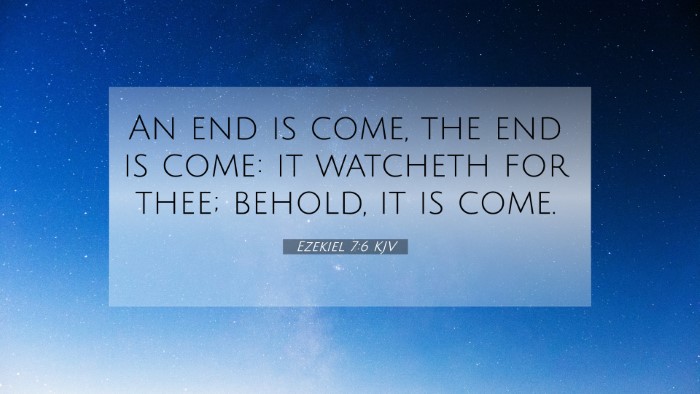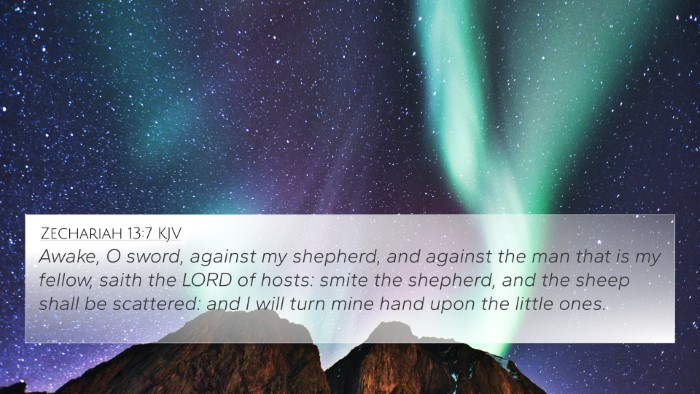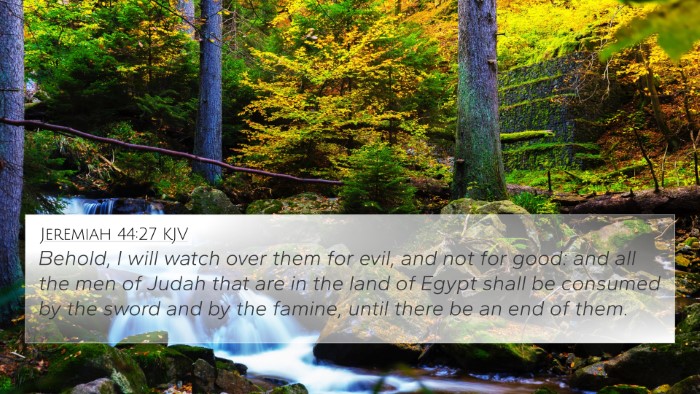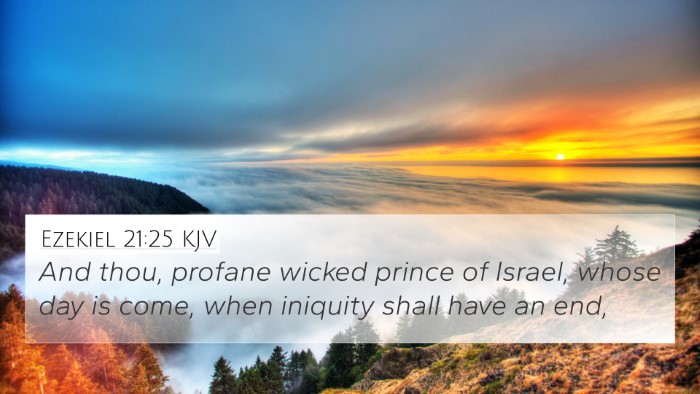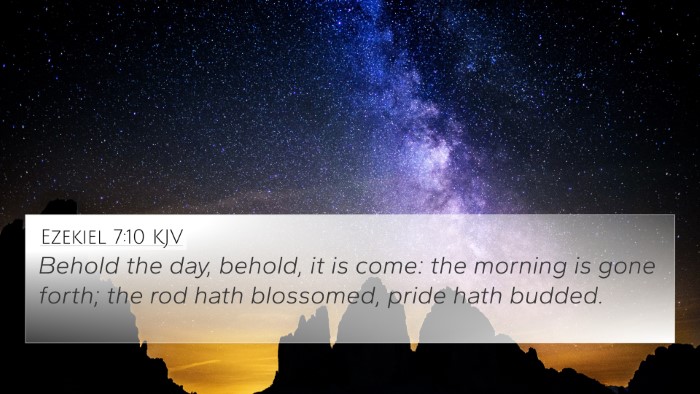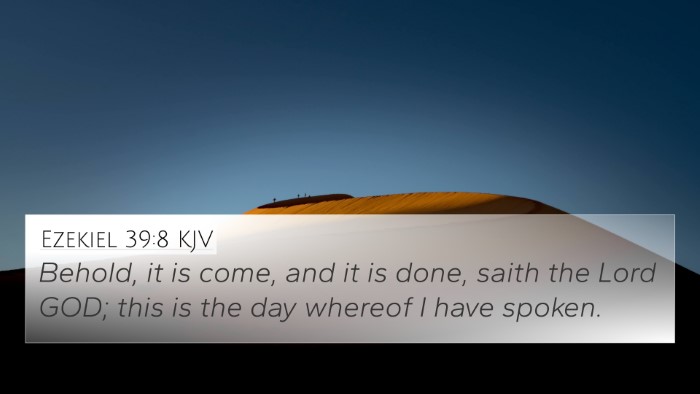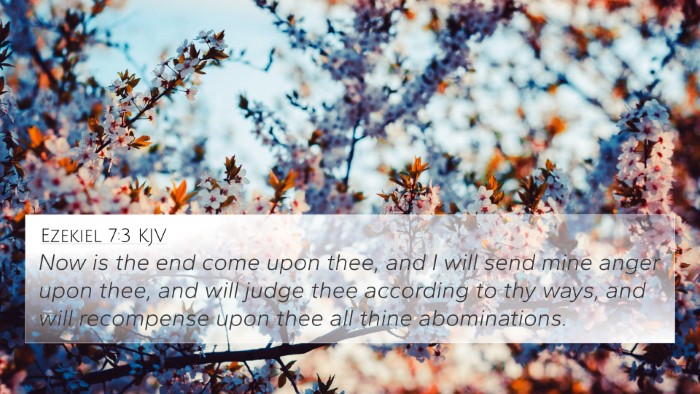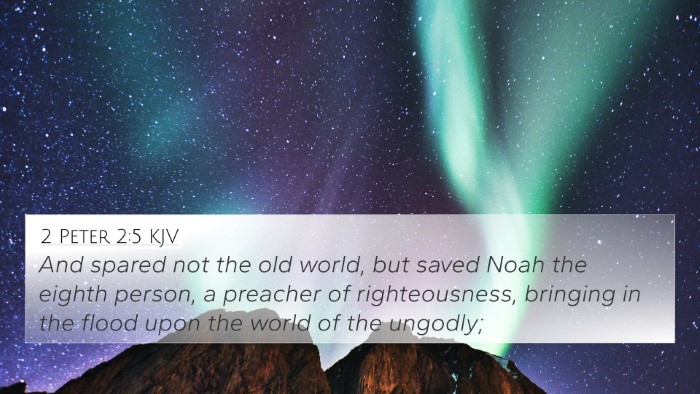Ezekiel 7:6 - Meaning and Interpretation
Bible Verse: Ezekiel 7:6
"An end is come, the end is come: it watcheth for thee; behold, it is come."
This verse serves as a pivotal point in the prophecy of Ezekiel, announcing the imminent judgment of Jerusalem. Here, we will explore its meaning through insights drawn from esteemed public domain commentaries such as those by Matthew Henry, Albert Barnes, and Adam Clarke.
Contextual Background
The Book of Ezekiel is a prophetic text in the Old Testament that addresses the exiles in Babylon. This chapter marks a crucial moment, emphasizing the certainty of God's judgment upon Jerusalem. The repetition of "the end is come" conveys urgency and inevitability.
Commentary Insights
-
Matthew Henry:
Henry highlights that this verse encapsulates the climax of God's long-suffering, transitioning from warnings to actual judgment. The 'end' signifies not only destruction but also the cessation of mercy for those who persist in sin.
-
Albert Barnes:
Barnes notes that the phrase emphasizes the 'watcheth for thee,' suggesting that God's judgment is not arbitrary but is waiting at the doorstep of those who have ignored the divine call to repentance. It underscores a specific time appointed for judgment.
-
Adam Clarke:
Clarke interprets the phrase as a proclamation of the absolute certainty of impending disaster. He articulates that the 'watching' denotes a vigilance on God's part, observing the deeds of the people and preparing to enact justice.
Theological Implications
In this passage, we see a declaration of God's righteousness. As the end approaches, it serves as a warning to all of God’s people about the consequences of sin and the reality of divine judgment.
Cross-References and Thematic Connections
This verse connects with several other Biblical passages that reinforce its themes of judgment and divine oversight:
- Daniel 12:1: References a time of trouble indicating a coming end.
- Amos 8:2: "The end is come upon my people Israel," reflecting similar sentiments of impending doom.
- Jeremiah 7:14: God’s warning regarding the temple and the coming judgment.
- Matthew 24:3-14: The New Testament’s emphasis on the signs of the end times.
- Revelation 21:6: Proclaims, “It is done!” signifying the completion of God's plan.
- Isaiah 10:25: A parallel discourse on God’s judgment on the nations.
- 2 Peter 3:10: Speaks of the day of the Lord coming as a thief in the night, emphasizing the theme of suddenness.
Application for Today
The message of Ezekiel 7:6 remains relevant as it invites reflection on the state of one's own life before God. The certainty of divine judgment encourages one to seek personal repentance and a closer walk with God.
Conclusion
In this verse, Ezekiel not only heralds doom but also calls for awareness and preparation. It serves to remind believers today of the significance of being watchful and responsive to God’s call, as echoed across various scriptural contexts. The thematic connections throughout the Bible further enrich the understanding of this text.


